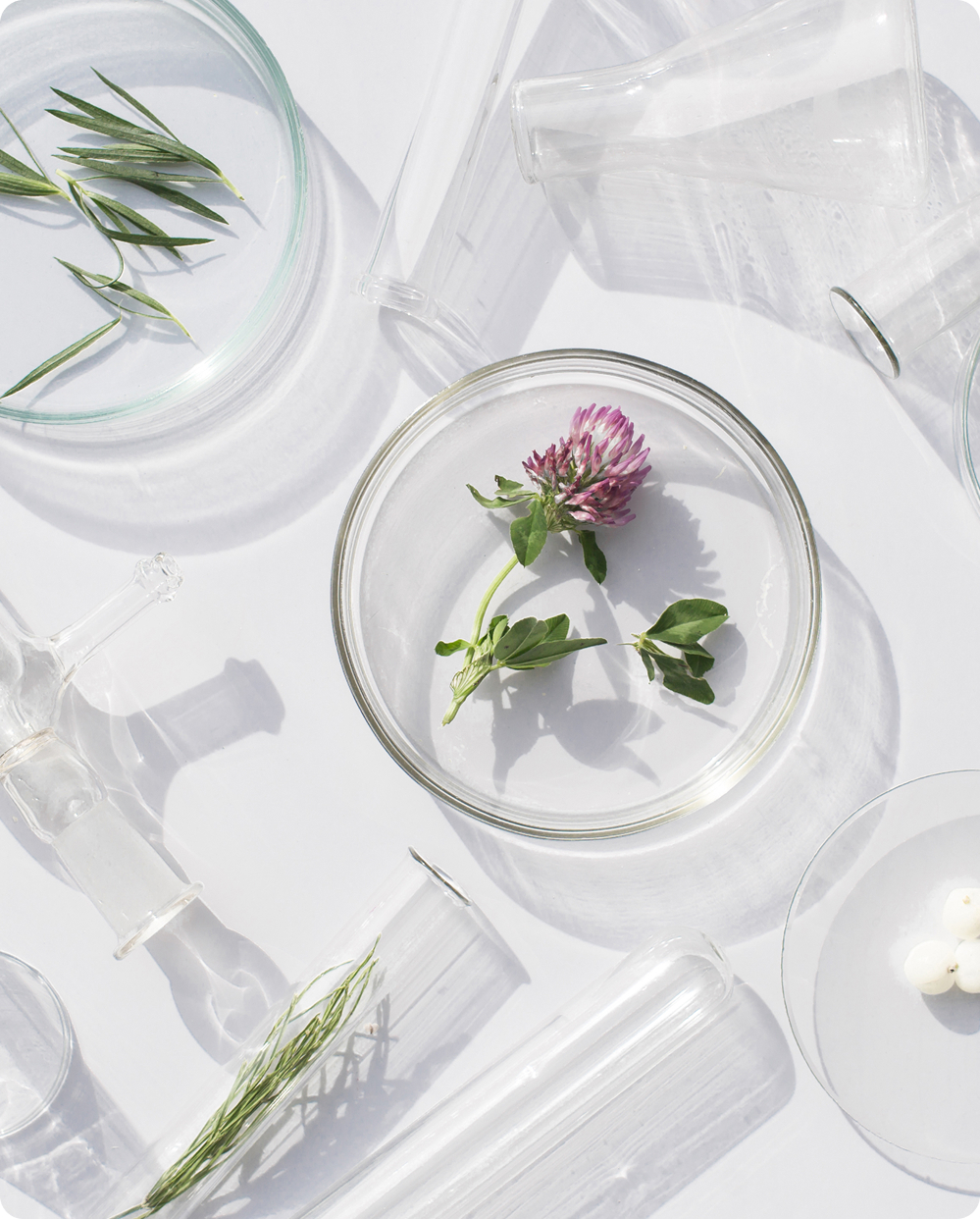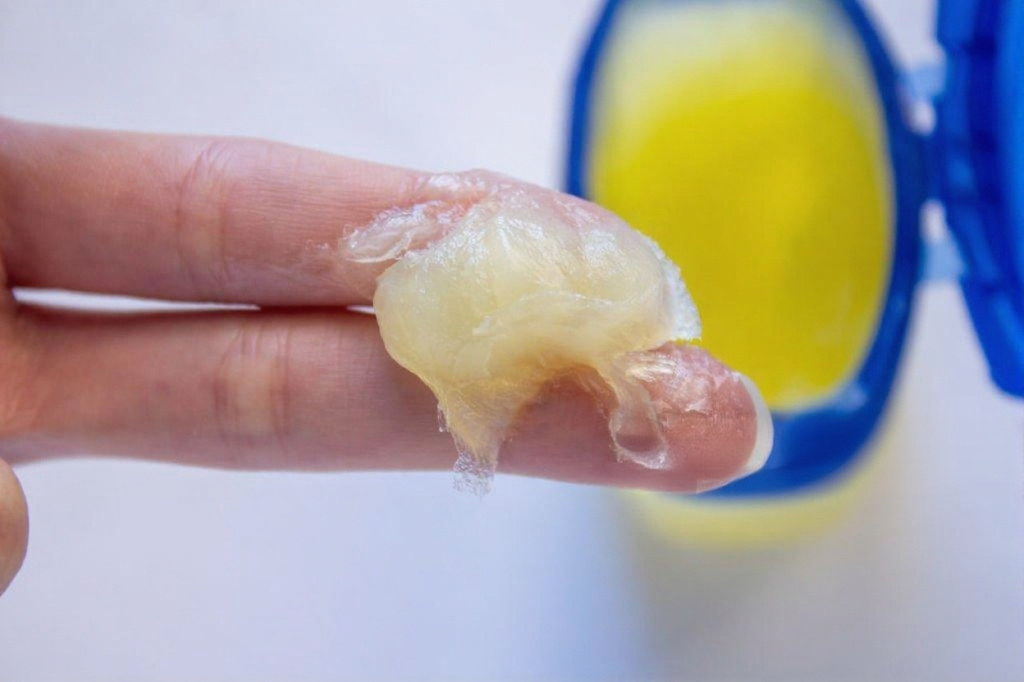Ever wondered if vaginal dryness could be a sign you're pregnant? It's a super common question, and hey, it's totally natural to pay close attention to every little signal your body sends when you're trying to conceive. While some pregnancy symptoms are pretty well-known (hello, morning sickness!), others can be a bit more confusing.
So, when it comes to vaginal dryness as an early pregnancy indicator, what does the science actually say? We're here to break it down for you. This guide will dive into the typical vaginal changes that happen during pregnancy, chat about whether dryness can sometimes pop up, help you figure out how to tell if it's pregnancy-related or something else, and share some safe ways to manage it.
Our main goal? To give you clear, scientifically accurate info so you feel empowered and clued in. And for a deep dive into vaginal dryness in general, including all its causes and how to tackle it, you'll want to check out our main article: Understanding Vaginal Dryness.
What Typically Happens to Your Vaginal Moisture During Pregnancy?
Okay, so here's the deal: you might think pregnancy means dryness, but actually, the most common vaginal change you'll notice is usually an increase in discharge. We're talking about leukorrhea here [1, 3].
Why the sudden surge? It's all thanks to your hormones doing a major happy dance, especially your estrogen levels. When estrogen goes up, it boosts blood flow to your vaginal area, which then tells your mucous membranes to produce more secretions. Plus, your cervix and vaginal walls get in on the action, making more mucus too [2, 3].
Think of this natural increase as your body's way of saying, "Hey, we're building a cozy, protective home here!" It's a healthy sign that everything's adapting beautifully for you and your little one.
The Takeaway: More Moisture, Not Less!
For most of us, pregnancy actually brings more vaginal discharge (we're talking leukorrhea here!) thanks to those rising estrogen levels and increased blood flow. This isn't just a random bodily quirk; it's your body's amazing way of creating a super protective and balanced environment for your little one. So, if you're looking for early pregnancy signs, dryness usually isn't on the list!
Can Vaginal Dryness Sometimes Occur During Pregnancy? (Spoiler: Sometimes, but it's not the norm!)
So, while increased discharge is usually the name of the game, everyone's body is a little different. Can you still experience vaginal dryness when you're pregnant? Yep, it can happen! It's just less common and usually not the first thing that screams "pregnancy!" [3].
Here are a few reasons why you might feel a bit dry, even when you're expecting:
- Hormonal Rollercoaster: Even though estrogen generally goes up during pregnancy, your hormones can still have their little dips and fluctuations, especially in those early weeks as your body adjusts. These temporary shifts might cause some temporary dryness for certain women [4]. It's like your body's still figuring things out!
- You're One-of-a-Kind: Seriously, your body is unique! How your vaginal tissues react to all those hormonal changes can vary from person to person. Genetics and your own personal physiology play a role here.
- Dehydration: Staying hydrated is super important for your whole body, including your mucous membranes. If you're not drinking enough water, it can definitely affect your overall moisture levels, and yep, that includes down there.
- Vaginal Environment: Pregnancy usually sets up a pretty happy, balanced vaginal environment. But sometimes, subtle shifts can happen that might make things feel a little less moist than usual.
It's important to remember that this kind of occasional, mild dryness is usually pretty different from the super persistent, severe dryness you might see with something like menopause (where estrogen takes a big, permanent dive). If pregnancy-related dryness does happen, it's typically temporary and not nearly as intense.
The Takeaway: Dryness Can Happen, But It's Not a Red Flag for Pregnancy
Though increased discharge is the norm, some women may experience occasional vaginal dryness during pregnancy due to individual hormonal fluctuations, dehydration, or unique bodily responses. This dryness is typically mild and transient, not a reliable primary sign of pregnancy.* the more definitive signs you should be looking for?
The Gold Standard: A Pregnancy Test
If you're wondering if you're pregnant, the absolute best way to know for sure is to take a pregnancy test. These tests look for human chorionic gonadotropin (hCG), a hormone your body starts producing when you're pregnant. A positive test, especially one confirmed by your healthcare provider, is the real deal.
More Common Early Pregnancy Signs (The Ones You Can Actually Count On!):
While vaginal dryness is a pretty unlikely solo pregnancy symptom, here are the signs that are much more common and reliable:
- Missed Period: This is often the first and most common clue [1]. If Aunt Flo is a no-show, it's usually the first hint.
- Tender, Swollen Breasts: Those hormonal shifts can make your breasts feel super sensitive or even a bit swollen [1].
- Nausea (aka Morning Sickness): This can kick in pretty early, with or without actual vomiting [1]. And yep, it doesn't just happen in the morning!
- Increased Urination: You might find yourself making more trips to the bathroom. That's because your blood volume increases, and your kidneys are working overtime [1].
- Fatigue: Feeling totally wiped out? Extreme tiredness is a very common early symptom [1]. Your body's busy building a human, after all!
- Light Spotting or Cramping (Implantation Bleeding): This can happen around 10-14 days after conception when the fertilized egg snuggles into your uterine lining.
When Dryness Might Be Something Else:
If vaginal dryness is your main concern and you're not experiencing any of those classic pregnancy symptoms, it's much more likely that something else is going on. And trust us, there are plenty of reasons why your vagina might feel a little parched that have nothing to do with a bun in the oven. Here are some common culprits:
Other Common Causes of Vaginal Dryness:
- Hormonal Changes (Not Pregnancy-Related): Your hormones are always on the move! Fluctuations during your regular menstrual cycle, perimenopause, breastfeeding, or even certain birth control methods can all lead to dryness [3, 4].
- Medications: Some medications can have dryness as a side effect [3]. Always worth checking with your doctor or pharmacist if you've started anything new.
- Irritants: Your vaginal area is super delicate. Scented soaps, douches, perfumed laundry detergents, or even some feminine hygiene products can strip away natural lubrication and cause irritation [3]. Stick to mild, unscented options! And remember, no douching!
- Stress: Yep, stress can mess with your whole body, including your hormonal balance and natural lubrication.
- Dehydration: Not drinking enough water can impact your body's moisture levels everywhere, including down there.
So, if dryness is your primary concern and you're not seeing those other classic pregnancy signs, it's a good idea to consider these other possibilities.
For those experiencing non-pregnancy-related vaginal dryness, research has shown that hyaluronic acid can be effective for improving vulvovaginal symptoms [5]. Neycher's Vaginal Moisturizer features 10mg of hyaluronic acid in a vaginal suppository formulation, along with vitamin E and lactic acid to support vaginal health. These ingredients work together to provide deep hydration while maintaining your vaginal ecosystem's natural balance.
If you experience dryness with other classic pregnancy signs, take a pregnancy test and consult your healthcare provider.
The Takeaway
Vaginal dryness isn't really a reliable early pregnancy sign; increased discharge is way more common. If you're wondering if you're pregnant, look for things like a missed period, tender breasts, nausea, and fatigue. If dryness is your main worry, it's probably something else, but always chat with a healthcare provider if it sticks around or makes you worried.
Managing Vaginal Dryness During Pregnancy (Because Comfort Matters!)
Okay, so if you are experiencing vaginal dryness while pregnant, don't sweat it! There are safe and gentle ways to manage it. The key here is always, always, always putting your and your baby's health first. That means having a chat with your healthcare provider before you try any new products or remedies. Seriously, they're your best resource!
Here are some gentle approaches you can consider:
Simple Steps for Comfort:
- Hydration is Your Friend: This one's a no-brainer, but it's super important! Drinking plenty of water helps your whole body, including those delicate mucous membranes. Stay hydrated, and your body will thank you.
- Ditch the Irritants: Your vaginal tissues are extra sensitive during pregnancy. So, let's avoid anything harsh! That means steering clear of strong soaps, scented feminine hygiene products, douches (seriously, just don't!), and even perfumed laundry detergents. These can strip away your natural lubrication and mess with your vaginal microbiome [3]. Stick to mild, unscented cleansers for external use.
- Breathable Underwear? Yes, Please! Opt for cotton undies. They allow for better air circulation, which helps prevent moisture buildup and irritation. And maybe skip the super tight clothing for a bit.
- Lube Up for Love (Water-based, of course!): If dryness is making intercourse uncomfortable, a high-quality, water-based lubricant can be a game-changer. Just make sure it's free from glycerin, parabens, and fragrances. Pick one that's designed to be gentle and play nice with your body's natural environment.
When to Talk to Your Doctor About Products:
- Vaginal Moisturizers (With a Doctor's OK!): For persistent dryness, non-hormonal vaginal moisturizers can sometimes offer relief. And hey, research does show that hyaluronic acid can be effective for improving vulvovaginal symptoms like dryness [5]. But here's the biggie: when you're pregnant, it's super important to talk to your healthcare provider before using any product, including those with hyaluronic acid. They're the best ones to tell you what's safe for you and your baby. Every pregnancy is unique, and what works for one person might not be right for another. So, always, always get their explicit approval before trying anything new.
Important Things to Keep in Mind (Seriously, Read This!):
- Your Healthcare Provider is Your MVP: Before you reach for any over-the-counter product, supplement, or even a home remedy, have a chat with your OB-GYN or midwife. They can help you figure out what's causing the dryness, rule out anything serious, and guide you to safe options. And a quick heads-up: if your vaginal dryness comes with weird discharge, a strong odor, itching, burning, pain during sex, or any other concerning symptoms, don't wait! Seek immediate medical attention.
- Hormonal Products? Nope (Unless Prescribed!): Unless your doctor specifically tells you to, avoid hormonal products. They can have systemic effects that aren't safe during pregnancy.
- Essential Oils? Proceed with Caution (or Just Don't!): Many essential oils aren't recommended during pregnancy, especially for vaginal use, because of potential risks. When in doubt, it's always better to err on the side of caution and skip them.
When you're dealing with vaginal dryness during pregnancy, think gently and cautious. Your healthcare provider is your go-to person for guidance. Focus on staying hydrated, steering clear of anything irritating, and using water-based lubricants or non-hormonal moisturizers (but only after getting the green light from your doctor!). The goal is to support your natural vaginal microbiome and avoid anything that could throw things off balance or pose a risk. Pain during sex, or any other concerning symptoms, don't wait! Seek immediate medical attention.
So, What's the Final Word?
Alright, let's wrap this up! Is vaginal dryness a reliable sign that you're pregnant? Science pretty much says, "Nope!" The most common vaginal change you'll notice is actually more discharge, which is a totally healthy sign that your body's adapting and creating a thriving vaginal microbiome.
Now, everyone's body is unique, and some women might experience temporary dryness. This could be due to those hormonal shifts, not drinking enough water, or just how your body rolls. But remember, this kind of dryness is usually mild, doesn't stick around long, and isn't a primary indicator of pregnancy.
If you're thinking you might be pregnant, your best bet is to grab a pregnancy test and then chat with your healthcare provider. And if you're dealing with vaginal dryness, figure out what might be causing it and how to manage it safely. Open communication with your doctor is always key, especially when you're pregnant.
Understanding your body and all its amazing quirks is super empowering! For a full rundown on vaginal dryness, including all the different causes and how to manage them, go ahead and explore our main article: Understanding Vaginal Dryness.
References:
[1] American College of Obstetricians and Gynecologists (ACOG). Changes During Pregnancy. Retrieved from https://www.acog.org/womens-health/infographics/changes-during-pregnancy
[2] American College of Obstetricians and Gynecologists (ACOG). Is it normal to have vaginal discharge? Retrieved from https://www.acog.org/womens-health/experts-and-stories/ask-acog/is-it-normal-to-have-vaginal-discharge
[3] Mayo Clinic. Vagina: What's typical, what's not. Retrieved from https://www.mayoclinic.org/healthy-lifestyle/womens-health/in-depth/vagina/art-20046562
[4] Mayo Clinic. Female sexual dysfunction - Symptoms and causes. Retrieved from https://www.mayoclinic.org/diseases-conditions/female-sexual-dysfunction/symptoms-causes/syc-20372549
[5] PubMed. Hyaluronic acid in vulvar and vaginal administration: evidence from a literature systematic review. Retrieved from https://pubmed.ncbi.nlm.nih.gov/33759670/








